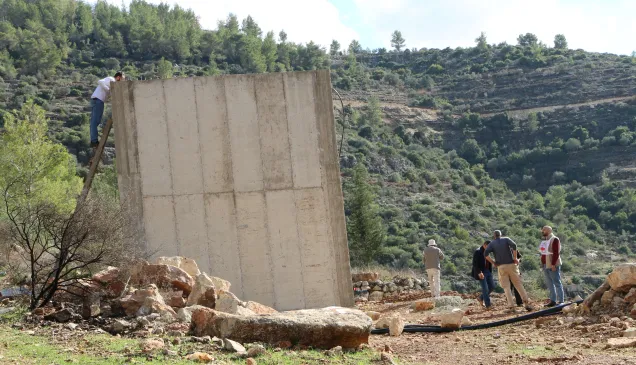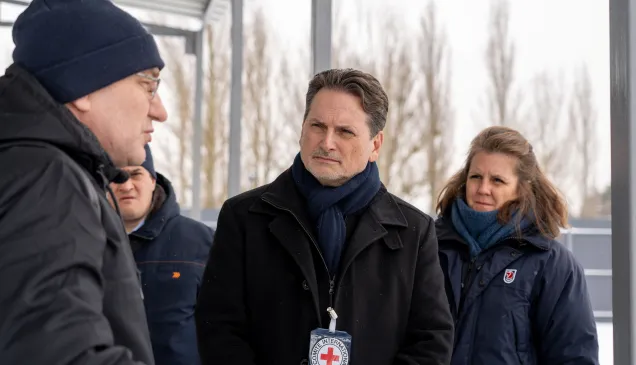Neutrality in war - a lifeline across front lines
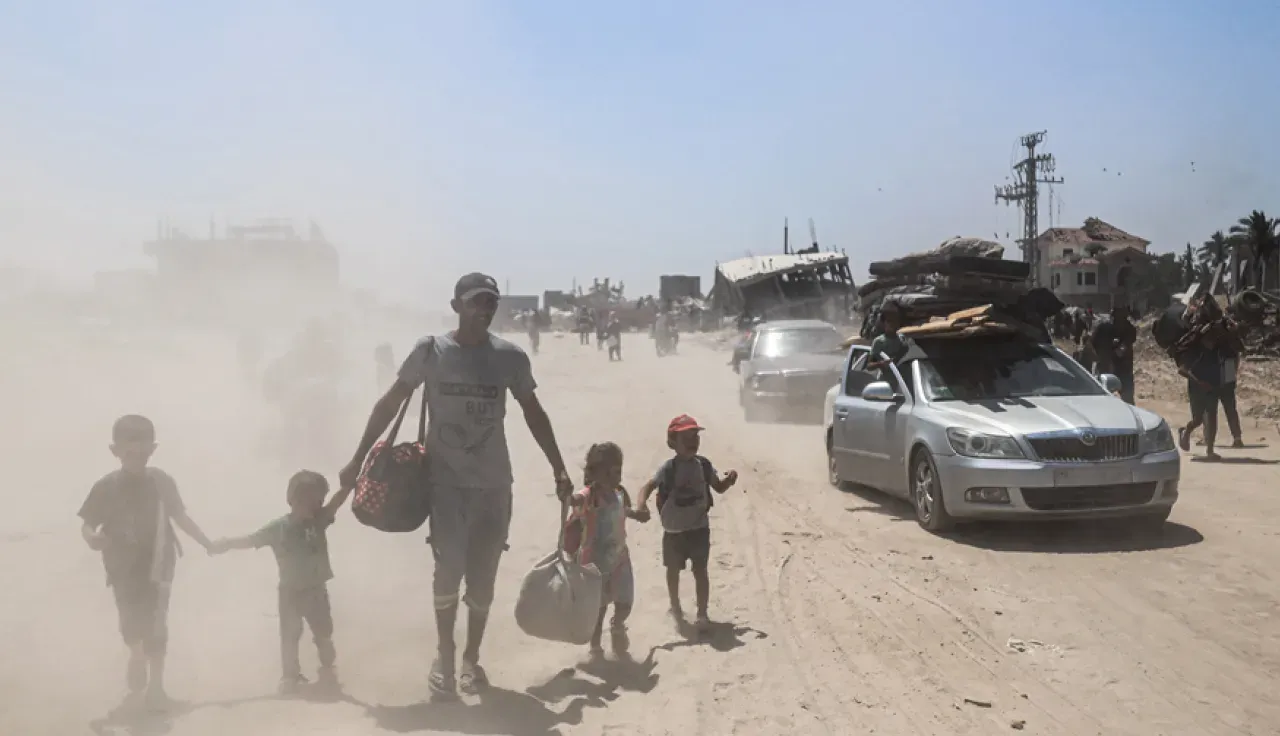
In today’s most volatile conflicts - from the Middle East to Eastern Europe and Central Africa - it is civilians who, almost without exception, pay the heaviest price. Conflict for civilians means loss. Loss of family members, loss of their homes, loss of access to health care and the most basic necessities for daily life, and too often loss of life.
Civilians whose lives have been destroyed by conflict are not concerned with who is right and who is wrong. They need help today, tomorrow and the days that follow, and it is these people the International Committee of the Red Cross (ICRC) is committed to reaching.
How neutrality saves lives and opens humanitarian corridors
In the chaos and complexity of modern warfare, where frontlines blur, facts are contested and civilians suffer, we play an important role: that of neutral humanitarian intermediary. Engaging in meaningful dialogue with all sides to a conflict means we are able to build trust, with the ultimate goal of reaching people caught up in the violence.
In conflict zones like Ukraine, Gaza, the Democratic Republic of the Congo (DRC) and Colombia, this role is vital — and often the only way help gets to those who are suffering.
Neutrality is not silence. It is one of the most powerful tools we have to reach those in need — not by taking sides, but by being present, trusted and effective.
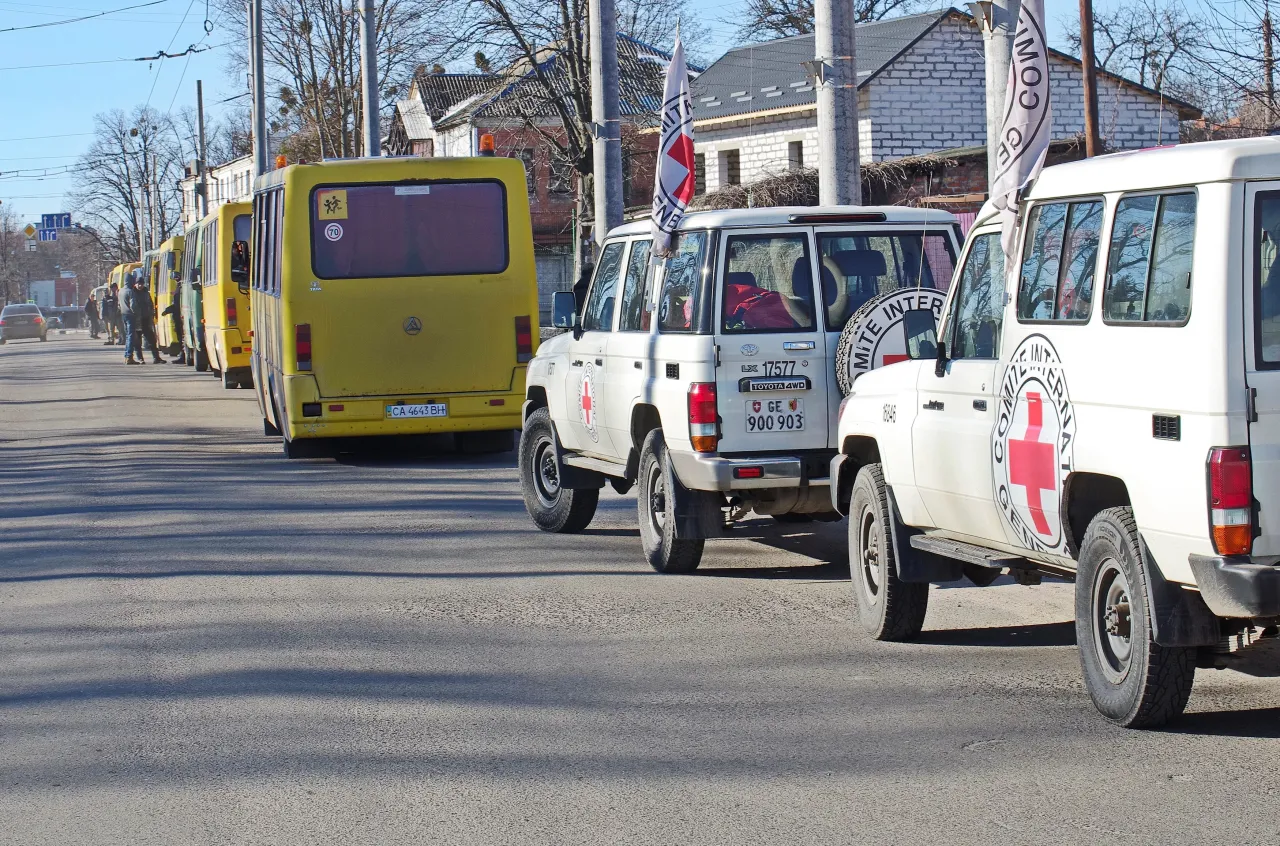
In Russia and Ukraine: A passage across frontlines
Since the escalation of the Russia-Ukraine international armed conflict in 2022, the ICRC has carried out humanitarian operations on both sides of the front line.
Our neutrality enables us to engage with both Russian and Ukrainian authorities to organize evacuations, support family reunification and facilitate the dignified treatment of the dead.
Through our Central Tracing Agency, we collect and transmit information about the fate and whereabouts of people separated by the conflict, as well as facilitating the passing of messages between family members - offering answers and a lifeline to thousands of families.
This work is logistically complex and politically sensitive. But our ability to work impartially with all sides is precisely what allows us to be there and be of use to people who need us.
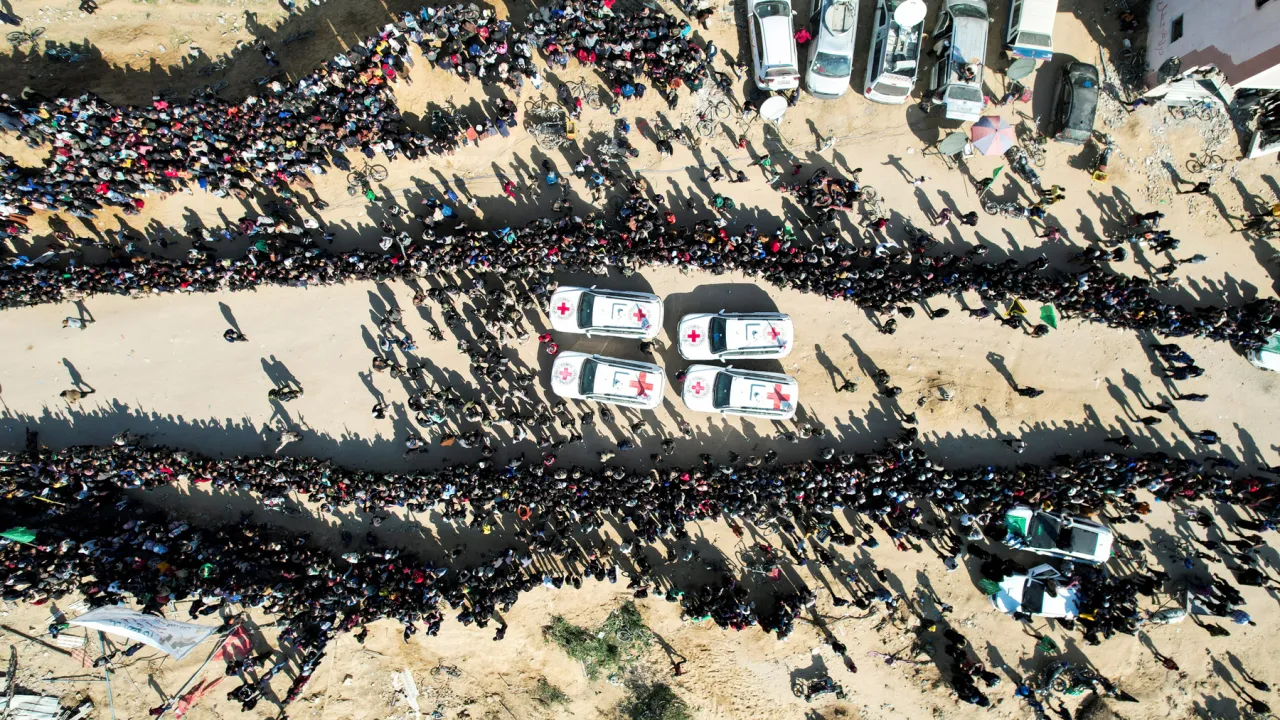
In Israel and the occupied territories: Facilitating return home
In the conflict in Gaza, the human suffering continues. In our efforts to alleviate this suffering, the ICRC’s neutral role has proved critical. As well as delivering essential medical care and participating in community projects providing food, this year we helped facilitate a multi-phase agreement that saw the safe release and transfer of hostages held in Gaza, and of detainees from Israeli places of detention.
These operations required extraordinary coordination, discretion and courage as teams navigated destroyed infrastructure, the threat of unexploded ordnance, large crowds and tense emotional environments.
We continue to call for the release of all hostages and for access to them, as well as for greater humanitarian access and the flow of humanitarian aid to people in desperate need across Gaza.
Read more about our operations in Israel and the occupied territories.
Release operations in Israel and the occupied territories
- Israel and the occupied territories: ICRC helps facilitate release of three hostages and 90 detainees, bringing hope and relief to families
- Israel and the occupied territories: ICRC completes second phase of release operations, reuniting more families
- Israel and the occupied territories: More families reunited as ICRC completes third stage of release operations
- Israel and the occupied territories: More hostages and detainees returned home in fourth phase of release operations
- Israel and the occupied territories: ICRC facilitates release of three hostages and 174 detainees
- ICRC facilitates safe transfer of three hostages and 343 detainees, and calls for dignified conditions in ongoing release operations
- Israel and the occupied territories: ICRC facilitates vital operation to allow families to bury their loved ones
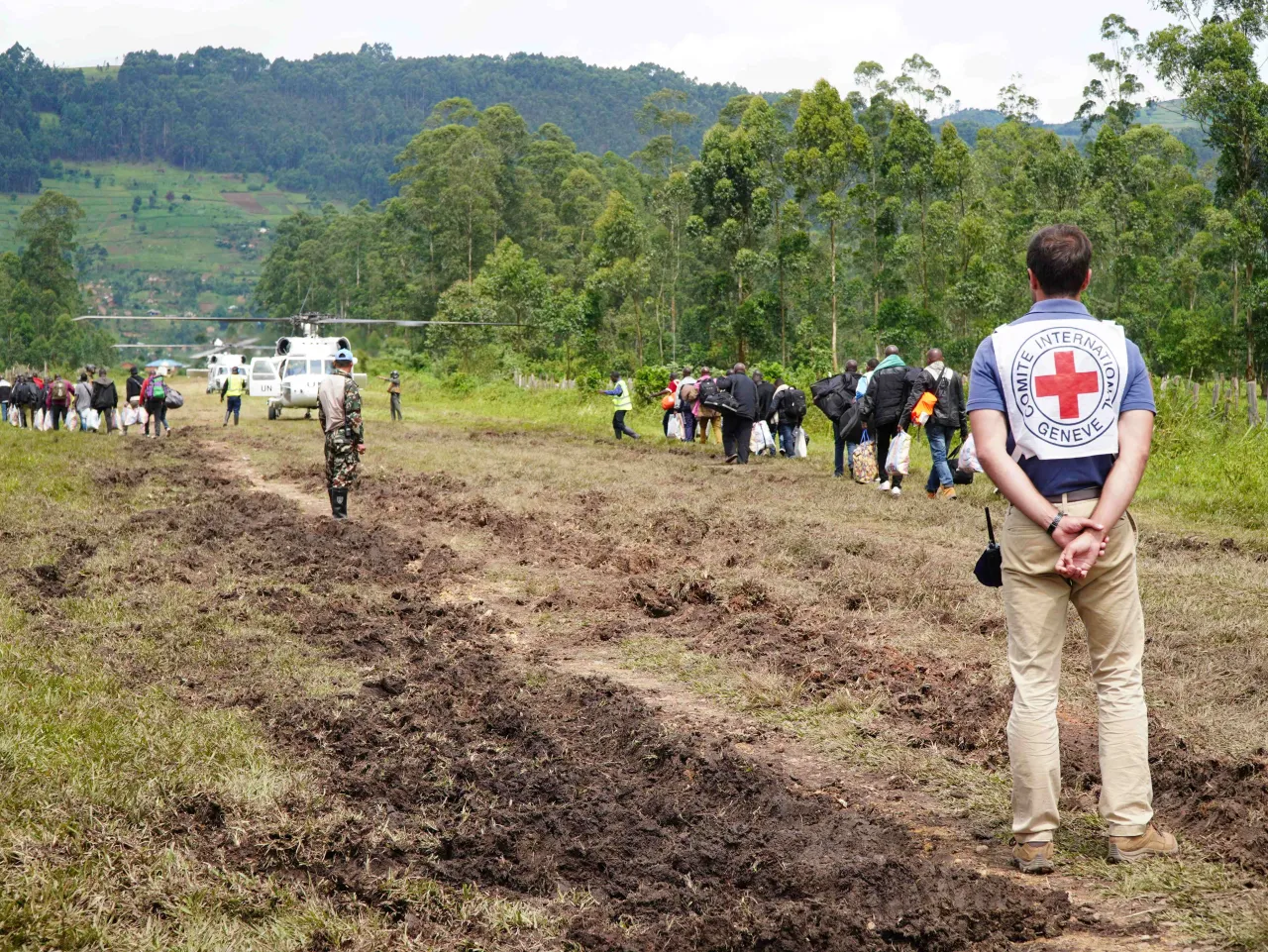
In the DRC: Supporting demobilization and reintegration
In the Democratic Republic of Congo, the ICRC recently accompanied and helped transport hundreds of disarmed members of the armed forces and national police - along with their families - from Goma to Kinshasa. This operation, which spanned nearly 2,000 kilometers and crossed multiple zones of conflict, was made possible because all sides trust the ICRC to act without bias.
Our teams ensured that these individuals were transported safely, humanely and voluntarily, while also calling for other humanitarian agreements to reduce tensions and alleviate the suffering of people in eastern DRC. These operations, though largely invisible to the public, are crucial to creating space for peacebuilding and easing human suffering.
As the humanitarian situation has deteriorated in the DRC and families have been forced to flee across borders, there has been an increase in the number of people separated, with children being especially vulnerable. In response, volunteers from the National Societies in the DRC, Burundi, Uganda and Rwanda, with support from the ICRC, have provided phone and internet services, enabling hundreds of displaced people and refugees to re-establish contact with their family members.
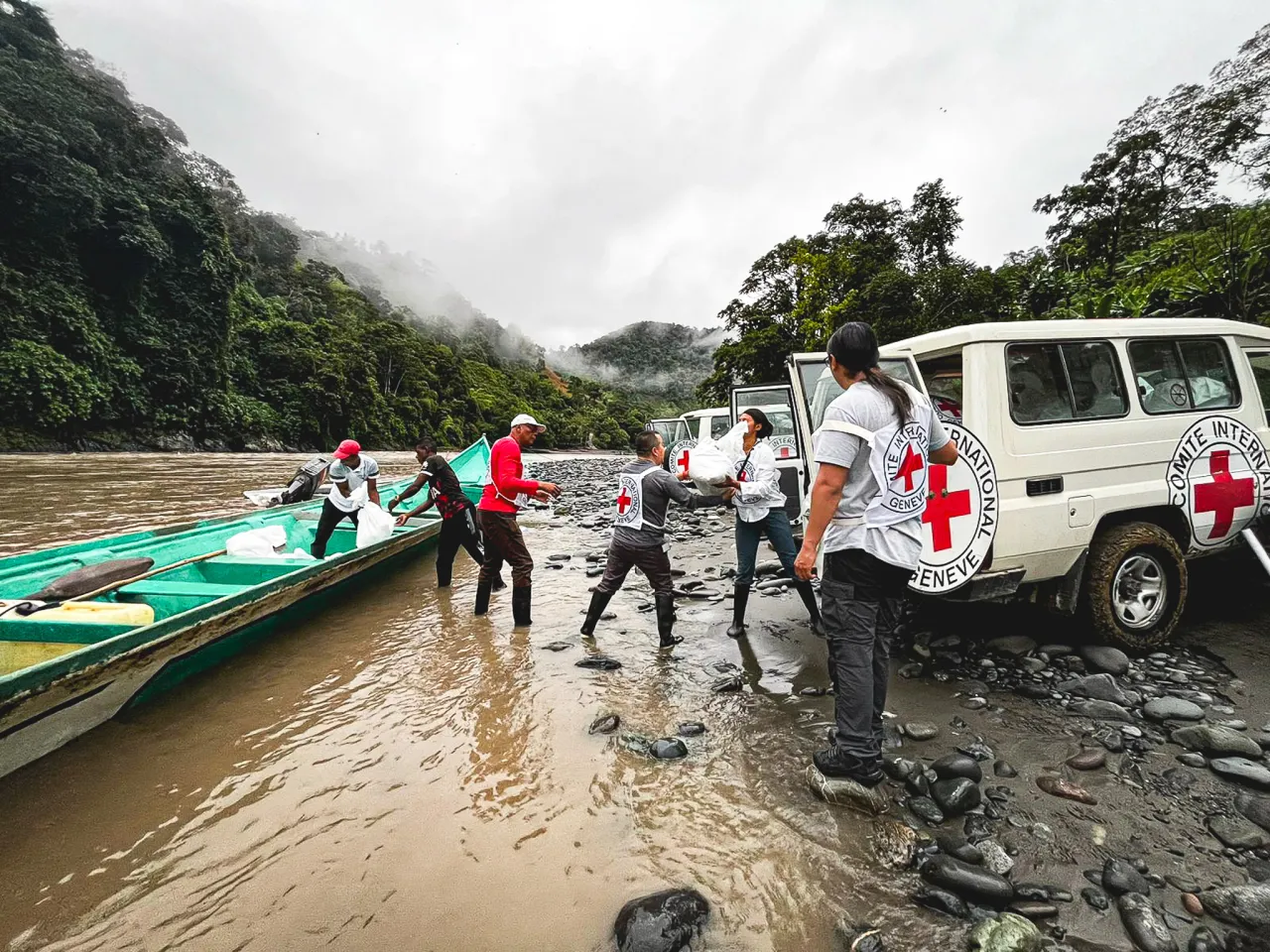
In Colombia: Building trust for humanitarian access
The ICRC’s role as a neutral intermediary is not new. In Colombia, it has been a cornerstone of our work for decades. Throughout the country’s long-running armed conflicts, the ICRC has visited people held by armed groups, helped clarify the fate of the missing, worked for dignified conditions for detainees and supported the safe demobilization of fighters.
We maintain a neutral dialogue with all parties to the conflicts and have often been the only organization they trusted to carry out humanitarian operations in certain areas. Our neutrality has enabled us to reach remote communities deep in conflict zones, deliver life-saving medical care and evacuate the wounded.
Neutrality is not indifference. It is what enables us to connect communities with authorities and to act as a bridge where dialogue is fragile or broken, so that victims of armed conflict receive sustainable, equitable, and long-term support - no matter how remote they are.
The power of neutrality in humanitarian action
For the ICRC, neutrality is not simply theoretical - it is a daily practice. It means we do not take sides, but we stand firmly for the rights of every person affected by conflict. It allows us to sit at tables others cannot, to reach places others will not and to deliver aid where others are unable or unwelcome.
Because we don't take sides we can:
- Facilitate the release and transfer of detainees and hostages
- Support safe evacuations and family reunifications
- Act as a trusted go-between for states and non-state armed groups
- Clarify the fate of the missing
- Deliver humanitarian assistance across front lines and borders
Much of the work to make this possible takes place behind the scenes, in quiet negotiations. This discretion ensures that we can be present, trusted and effective.
As armed conflicts become more complex and politicized, neutrality as a concept is increasingly criticized by detractors, but it nevertheless remains our compass. It is what allows us to reach across divides and extend a hand to people on all sides of the frontline. Because in the end, the goal is clear: to be able to reach those who need help, wherever they may be.

